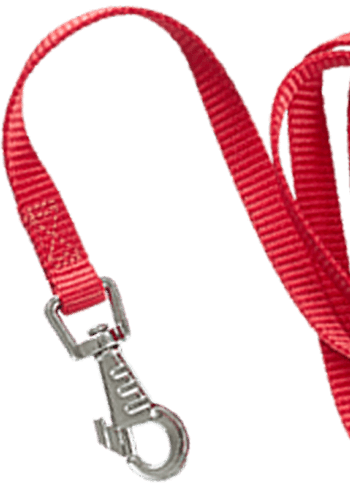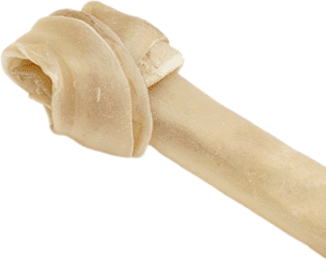


Picture this: You’re welcoming a new, adorable Labrador puppy into your family and the whole family is excited to play with him. He’s incredibly excited, running around and wagging his tail. But as your kids approach the puppy, he starts biting and nipping them, causing a few surprised cries.
Labrador Retrievers are friendly and playful puppies who grow into some of the most loyal adults – but you might worry about their habits when they’re nipping so young. The good news is that, for the most part, puppy bites are harmless: Around 81% of dog bites cause absolutely no injury and don’t require medical attention.
But if you don’t train your new Labrador puppy not to bite, the behavior might get worse – and more painful – as they grow. In this guide, we’ll cover what you need to know about Labrador Retrievers and their biting behaviors.
It’s common knowledge that families and children love Labrador Retrievers. As a breed, they’re the most sought-after family dogs.
And there’s a reason for it: According to what the American Kennel Club says of Labradors, they truly fit with what a family wants in a dog.
The AKC says Labradors are an affectionate breed, treating adults, children, and other animals like family without causing any trouble. They are very open to meeting strangers, which you’re sure to notice when your new puppy stops to greet everyone on the street!
Labradors are easy to train and receptive to learning new commands since their main goal is to please their families. If they do bark, it’s likely out of excitement and the desire to be mentally stimulated and challenged.
But their playfulness leads to them becoming overstimulated, and that’s when they can start biting and nipping at you or your kids. They’re not trying to harm you, but since a Labrador puppy just doesn’t know how to control or stop biting, it’s up to you to teach them.
As your new puppy settles into their new home, they are many stimulants, and he needs time to get to know your family, its new surroundings, and that not all slippers are a toy.
Just as when people move to a new house, city, or country, your new Labrador puppy is exploring the world. This process will take a few weeks, so be patient. Before you know it, you’ll think this Labrador puppy is exceptionally well-behaved!
But what happens when he suddenly starts biting you and your kids? The worry that you made a mistake bringing a dog home sets in, and you might ask yourself whether it’s just your puppy doing this.
So, if you’re worried that you got a badly behaved puppy, find some comfort in the fact that it’s not just you. Every family that gets lab puppies faces this challenge.
Although your puppy is only a few pounds, Labrador puppy biting is still painful. Many owners worry that the behavior will continue into adulthood, especially when biting becomes an ongoing issue.
The good news is that there is usually a short time frame that you have to experience this. Chief Veterinary Officer of the AKC, Dr. Jerry Klein, said it best:
“Play biting does not mean your puppy is vicious. However, if you haven’t been able to moderate the behavior by the time they’re six months old, it’s a good idea to consult an experienced dog trainer or animal behavior specialist.”
But since you can’t just let your puppy bite and nip for the next few months, training and understanding why your lab puppy bites is a great start to stop this behavior immediately.
A Labrador Retriever is a breed that likes putting things into its mouth.
In fact, it’s an evolutionary trait because this breed loves to retrieve things – birds, fish, other prey, chew toys – and bring them to their owners or pack.
So in reality, Labrador puppy biting is primarily instinctual. Still, there are many other reasons for your Labrador puppy biting behavior, so let’s explore those.
Sometimes, a Lab puppy biting is simply due to teething. Teething is uncomfortable, so your pup likely just wants to relieve that discomfort in any way possible. If that means biting a chew toy or your fingers, then so be it.
The solution: Luckily, this phase doesn’t last long. Once your Lab puppy has its teeth, it might stop biting and nipping. You can help ease his comfort by offering him teething toys for puppies, like frozen chew toys.
Your new Lab puppy could get excited by just about anything: Your kids squealing, shouting, or crying, and adults shouting or being angry can set off your Lab puppy biting with its sharp teeth.
When your Lab puppy is excited and can’t seem to stop wagging his tail, he’s more likely to start biting. That doesn’t mean you have an aggressive dog – as this is normal behavior – but even so, his playful biting hurts.
The solution: Deter your puppy from biting you by redirecting him to what he can bite, like a toy.
Most Labrador puppies are receptive to conditioning and positive reinforcement. If you start laughing at your Lab puppy biting or reward him with treats, the puppy learns that biting = attention.
Dog lovers know that dogs crave attention from their families, but Lab puppies are extreme attention seekers. They love any form of contact with their families, whether playing, petting, or even just eye contact. So if your pup gets these responses from you while biting, he will interpret them as attention.
The solution: Stop giving your puppy the attention he wants when he bites so he learns not to associate the two.
A small Lab puppy doesn’t know how much biting is too much: It has poor bite inhibition, meaning that it can’t adjust its force not to hurt you.
When puppies are with their mom and siblings, the mom teaches them how hard they can bite each other without it being too painful through play fighting. Your Lab puppy learns how to calibrate strength based on his own family experience.
But, since humans don’t have thick fur and tough skin, a Labrador puppy biting us is more painful than if it were biting its mom or siblings.
The solution: A great way to stop your lab puppy from biting is to teach bite inhibition so he will understand when it’s hurting you and adjust accordingly. This method won’t immediately eliminate problematic puppy biting, but it’s the first step toward stopping it!
Do Labrador Puppies Bite Children?
It’s normal for families to worry a little bit about how their children will adapt to adopting a Lab puppy.
One major adjustment is the play-biting: A small Lab puppy has a powerful bite and can cause pain, especially to such sensitive skin. The downside is that Lab puppies are more likely to bite children and teenagers than adults. It all comes down to learning how to interact with the puppy.
Children and teenagers are inherently more confusing for a Lab puppy. Children’s behavior is inconsistent, so puppies don’t know when to play or leave them alone. Kids are also more excitable – running and shouting everywhere – so they match a Lab puppy’s energy much more, causing the puppy to become excited and bite playfully.
The great news is that you can stop your Lab puppy from biting your kids through consistent training, but the training should be on both sides. Your kids also need to learn how to play and interact with the puppy, understanding its boundaries and playing just enough to keep them from overexciting.
It’s a nice day outside, and you and the kids are playing with the new puppy. You plan to throw a chew toy into the yard for him to chase – but before you can throw it, he suddenly starts nipping and tugging at your hands while making odd puppy sounds that sound dangerously close to snarling.
Right away, this behavior is concerning: Maybe you’re afraid that you won’t be there to calm down the puppy next time, and he’ll accidentally hurt the kids. You might also be worried that you have a puppy displaying aggressive biting behavior.
Dogs are powerful predators, and while we’ve learned to coexist and love them, the fear that they could hurt us is still there. But there’s good news: Snarling and biting are just normal behavior for young, inexperienced puppies.
When puppies play with their mothers or siblings, they’re very fierce. They will bite, snarl, and tackle each other — but that’s just how they play and how their mom teaches them to behave with each other. To them, it’s just playing and making loud noises.
To us, that behavior can be scary, but rest assured that it’s just puppies being puppies. Puppies growl and snarl as part of playtime and don’t know they’re scaring you or your kids. Most of the time, they mean no harm and just need a little training to control it!
Inexperienced dog owners might try different techniques to stop their puppy from biting. Without the proper guidance and education, many of these methods might be wrong: Instead of discouraging your puppy from biting, you could unintentionally reinforce it.
So before we dive into how to train your Lab puppy to stop biting you, let’s look at a few things you should avoid when it’s time to redirect your pup’s habits.
Whatever stage of puppy development your adorable pup is in, he will always crave attention. If you encourage and reward play biting, he will associate it with attention, praise, and treats, causing him to do it more.
So if your puppy has entered its biting phase and is displaying rough or aggressive behavior, stop yourself from giving any reaction. Don’t look, laugh, or pet him. Don’t give him treats, call them a good dog, or play fight with them. Simply follow rigid training steps, and it will eventually stop.
Although that might be very hard to do because a Lab puppy is so adorable, you will thank yourself in the future for doing this. Otherwise, your pup will continue biting, and an adult Labrador’s bite can be excruciating – so save yourself a mountain of pain and don’t encourage play-biting.
Many people might also try to correct a puppy’s behavior through punishment, like yelling or sending him to his crate. This behavior actually doesn’t work. In fact, it might even make things worse.
When you punish your Labrador, he might learn to fear you. This can worsen the biting and lead to your puppy developing more aggressive behavior as an adult.
Some people also do a light swat on their puppies when they misbehave. If your pup stops because you hit him, that doesn’t guarantee he won’t do the same thing to your kids or other people again.
Punishment doesn’t solve your problem and might not lead to a happy puppy. When your pup starts biting, remain calm and follow positive training methods rather than negative ones.
Ignoring a problem almost always worsens it. This is especially true when it comes to a nipping Labrador puppy.
While a biting puppy is normal puppy behavior, without proper training and techniques, your Labrador might bite well into adulthood. This makes training them to stop later in life all the more difficult, so be sure to take the time to appropriately acknowledge and train your dog to stop nipping while he’s still young.
When your Lab puppy starts biting at 9 or 10 weeks when you bring him home, his soft mouth and small teeth won’t hurt that much at first…but if you don’t immediately start a training routine, it might worsen, and your puppy will learn to bite harder as he gets older.
The first step in your training routine should be teaching your kids how to interact with the puppy. Children under five still don’t know how to play with puppies appropriately without unknowingly encouraging the puppy to bite.
When you bring home a new puppy, it’s vital to teach your children how to behave around the puppy to learn to respect the puppy’s boundaries.
Teach them to:
As time passes, your kids and the puppy will learn to behave around each other, and you’re set for a long road of happiness for years to come.
Lab puppies are easily excited, so this is a difficult step to enforce. No matter what toy you have or game you’re playing, your Lab puppy will start running around as happy as ever.
But if they start barking and biting out of excitement, you must stop playing with them immediately. Don’t give him any attention, rewards, or treats. Instead, pick up the toy and step away.
The puppy will slowly understand that his erratic behavior is ending the play session and learn to associate that biting = no playing.
The next step is to teach your Lab puppy bite inhibition. Bite inhibition is when you teach your puppy how much is too much. It’s a crucial step in reducing biting and eventually stopping it completely.
Here’s what you can do next time your pup starts biting:
As your puppy learns to bite with less intensity, you can start training it not to put your hand in its mouth. This training takes time, so be patient, and you will see a positive result.
You can also use other training techniques to reinforce positive behavior. Grab a clicker or a bag of your pup’s favorite treats and practice these things:
As you train the puppy to tolerate your hand getting closer to it without biting, you can finally keep your puppy calm and play safely without causing overstimulated biting.
Even if you’ve successfully trained your puppy not to bite you, the behavior always needs to be reinforced. Puppies and dogs might go back to their bad habits if you change how you interact with them, so being consistent is crucial.
Always follow your training steps, reward your dog with treats when he doesn’t bite you, and refrain from giving it attention if he does start biting.
Remember that children tend to take more time to learn training steps, so always reinforce the boundaries and supervise them during playtime in the early training days.
If you’ve been going through the training steps for some time and your puppy is still biting you and your kids, then you have three choices:
Remember to never punish your puppy for biting. It’s normal behavior, and all you can do is dedicate time to training and loving it as much as possible. Invest in some good toys, such as different chew toys or Kong toys, so you always have something to redirect him towards.
Whether teething, scared or just excited, most Labrador Retriever puppies bite for various reasons.
Unfortunately, those sharp little puppy teeth can hurt – so if you notice some unwanted biting from your Lab puppy, you should immediately start training him into different behavior.
And if you’re looking to get a well-mannered Labrador puppy, there’s good news because you don’t have to look any further than Snowy Pines White Labs. At Snowy Pines, we put our dogs first, which is why we’re one of the country’s highest-rated breeders for Labrador puppies.
Learn more about what we do and check out our available Labrador puppies today!